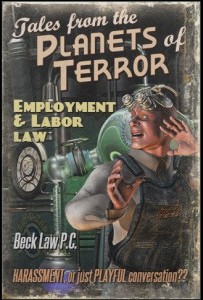 Landmark California temporary worker protection law. This month, Governor Jerry Brown of California signed a new bill into law that will finally hold businesses responsible for situations when subcontracted temporary staffing agencies that a business utilizes underpay and/or endangers temporary workers. The law, previously known as Assembly Bill 1897, was created to address at least some of the accountability issues facing the temporary worker industry. In industries such as food processing and warehousing, outsourcing work to low-paying temporary staffing agencies has become extremely profitable practice for two reasons. First, the cost of using temporary workers is less than the costs associated with utilizing full-time employees. For example, under the Affordable Care Act, businesses are not required to provide health insurance policies for temporary workers, though they are required to cover the costs associated with providing health insurance to full-time employees. Second the use of temporary workers has allowed companies to skirt responsibilities regarding the adherence to workplace regulations and laws. Companies have been able to avoid responsibility for workplace regulation violations even if they are the one’s overseeing the work of temporary employees.
Landmark California temporary worker protection law. This month, Governor Jerry Brown of California signed a new bill into law that will finally hold businesses responsible for situations when subcontracted temporary staffing agencies that a business utilizes underpay and/or endangers temporary workers. The law, previously known as Assembly Bill 1897, was created to address at least some of the accountability issues facing the temporary worker industry. In industries such as food processing and warehousing, outsourcing work to low-paying temporary staffing agencies has become extremely profitable practice for two reasons. First, the cost of using temporary workers is less than the costs associated with utilizing full-time employees. For example, under the Affordable Care Act, businesses are not required to provide health insurance policies for temporary workers, though they are required to cover the costs associated with providing health insurance to full-time employees. Second the use of temporary workers has allowed companies to skirt responsibilities regarding the adherence to workplace regulations and laws. Companies have been able to avoid responsibility for workplace regulation violations even if they are the one’s overseeing the work of temporary employees.
Temporary Worker Protection Law Aims to Curb Abuse of Temporary Worker Status
In the past decade, Southern California’s Inland Empire has become the home to a massive retail distribution industry that has been known to exploit low-wage temporary workers in order to produce a wide assortment of retail products at low costs. These temporary workers have spoken out about the unsafe working conditions and rampant wage theft that they have experienced. Worker advocates and labor unions have criticized the businesses who exploit the labor of California’s temporary workers, and the state has finally decided to take notice with the implementation of the new law specifically created to protect temporary workers.
AB 1897 requires “the client employer to share with a labor contractor all civil legal responsibility and civil liabilities when it comes to paying wages to temporary workers. AB 1897 also prohibits client employers who utilize temporary staffing agencies from shifting the legal duties and liabilities associated with workplace safety to the contracted agency. As a result of these regulations, the state of California now has the right to fine businesses when the temporary staffing agencies they have contracted with have violated federal and state workplace laws.
Though it may seem obvious to some that businesses employing temporary staff should be held accountable for violations and bad working conditions that are experienced by temporary workers, the new law has created some discord amongst the business community. In fact, the California Chamber of Commerce has spoken out against AB 1897, stating that the law would “discourage further growth in this state, and will certainly discourage out-of-state companies from [re]locating here.” However, regardless of this dissent, California remains committed to protecting the rights and safety of all California employees regardless of their status as a full-time or temporary employee. In fact, AB 1897 is one of the many labor-friendly laws that has been recently passed in California. Other relevant laws include raising California’s minimum wage to $10 per hour, as well as newly governor-approved bill that will require employers to provide employees with paid sick leave.
If your business needs legal representation in Sonoma County, Mendocino County, or Lake County California contact the attorneys at Beck Law, P.C. We are prepared to help you in any way that we can.









